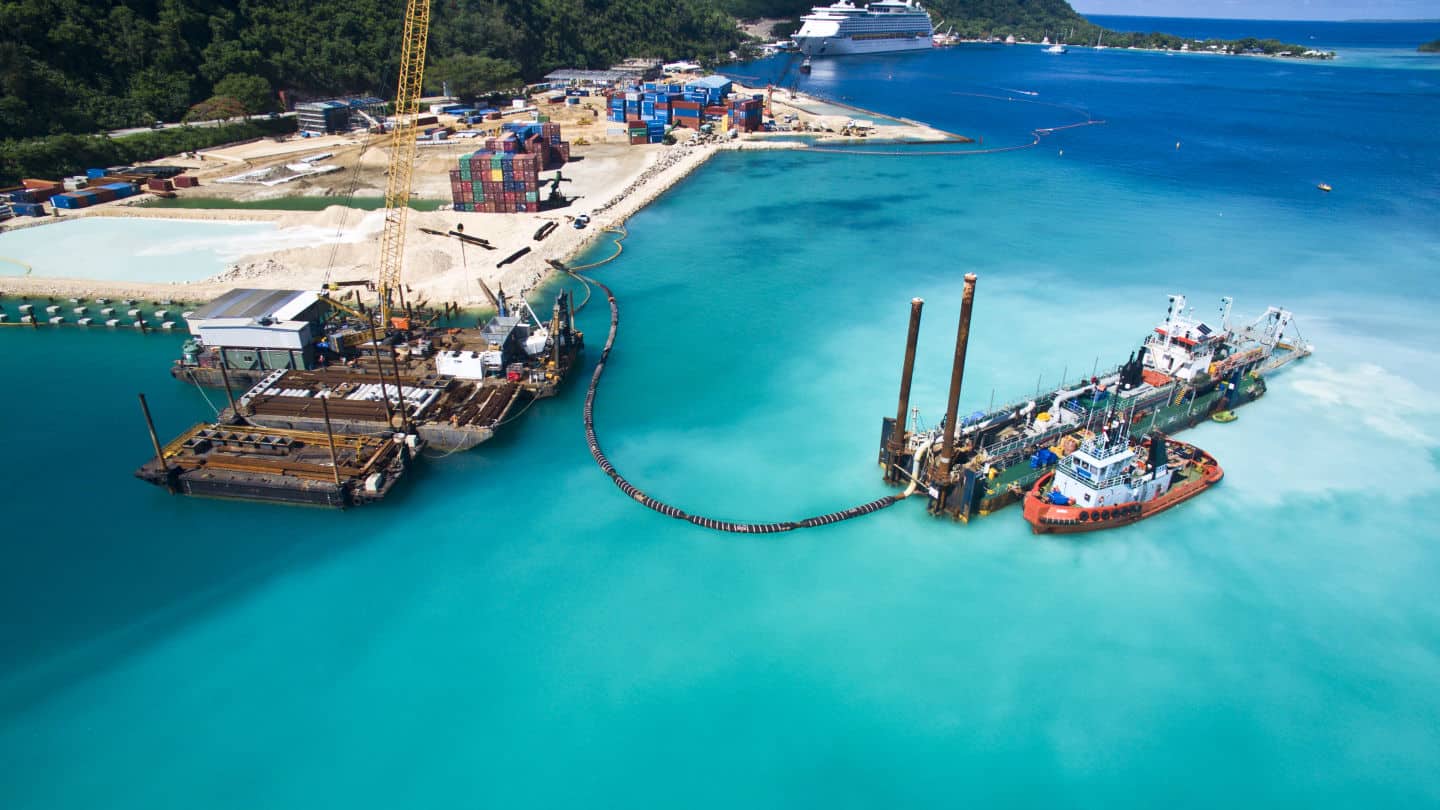An upcoming conference will be looking into the future of getting better quality infrastructure for Pacific Island countries.
Organised by the Australia Pacific Islands Business Council (APIBC) in collaboration with the Australia Fiji Business Council (AFBC) and the Australia Papua New Guinea Council (APNGC), the Pacific Infrastructure Conference will be held in Brisbane, Australia from September 25-27, 2023, with more than 300 delegates attending.
The conference aims to assist Pacific Island countries’ decision makers in achieving long term value for money in the awarding of contracts for the development of sustainable resilient infrastructure; provide an opportunity for each country to detail its pipeline of infrastructure projects; and to facilitate connections to form joint ventures and employment of local contractors in the delivery of sustainable resilient infrastructure projects.
The conference promises a diverse line-up, featuring representatives from all 16 Pacific Islands Forum countries, as well as Australia, New Zealand, the United States of America, France; and other bilateral partners and multilateral development agencies such as ADB, World Bank, and UNDP.
“All Pacific countries have challenges with infrastructure,” said Frank Yourn, APIBC Executive Director in an interview with Islands Business. “The challenges can be different in different countries, but broadly, all of the countries have challenges around roads, ports, airports, water supply and telecommunications. For example, a big country like Papua New Guinea, needs a big network of good quality roads, whereas smaller atoll countries, it doesn’t need so many roads, but it still needs good roads, because they still want to make sure that the road that’s built this year is still a good road in five years’ time.”
Pacific Islands countries have an extensive pipeline of donor-funded infrastructure projects planned for the short to medium term, including the A$4 billion Australia Infrastructure Financing Facility for the Pacific (AIFFP). “When money is coming from a donor organisation like a multilateral bank or a bilateral donor, it’s important that the work is done properly so that it is resilient and it lasts for a long time. So that when a new road is built, the road doesn’t start to get potholes, and lasts for a long time. So we think there’s a very positive attitude from Australian businesses to help Pacific Island countries get better value for their infrastructure projects,” added Yourn.
“We also want to look at issues surrounding procurement,” said APIBC President, Ian Clarke. In the past, projects have often been led without adequate safeguards [and] there’s been delays. It’s also important that the procurement includes local participation. So these works can do a lot for the local economy if there are local joint venture partners, local contractors, and local labour involved. I think too often in the past that has not been a priority. It is clearly a priority now for most donors.
“On power generation, hopefully we’ll eventually move away from dependency on fossil fuels and use solar and other renewable energy.
“Other important issues we will be looking at are gender balance and the involvement of women in the industry, which I think is a very important issue.
Clarke notes that the Pacific Islands Investment Forum, the peak body that represents provident and superannuation funds in the Pacific, will be presenting and hopes that “a good result could produce in rebuilding infrastructure, local equity and health research funds, so that the people of the Pacific own these facilities. There’s a lot of superannuation funds that invest in critical infrastructure and allow members to have the direct interest in these nation building projects.”
Australia’s largest dredging contractor, Halls Contracting, will also be present at the conference. It has been in operation for more than 70 years.
APIBC Vice President & Associate Director – Development of Halls Contracting, William Blank, explained: “We undertake a lot of flood mitigation dredging and climate change adaptation in terms of building seawalls and reclaiming land. We also build marine infrastructure like outer-island wharfs.”
Blank says they have worked in Papua New Guinea, Fiji, Vanuatu, Tokelau and are now working on reclamation, coastal adaptation and an outer island wharf in Tuvalu.
Blank said the key message he will be taking to the conference will be enhancing partnerships. “For our business, it’s imperative that we work with local contracting firms. When there isn’t any capacity, we actually assist local communities to build capacity. And therefore, we can work with Pacific Island communities to gain skills which they can then carry on and utilise amongst their communities.
“We often know that there’s certain national infrastructure investment plans that do get put together and approved at a cabinet level, but it’d be really good to hear the Ministers talking about their priorities. I’m really interested to get to as many sessions as possible and hear from all because I’ve got a vast interest in every single country.
“We’re also really keen to see a lot of Australian, New Zealand, Japanese, US, and French-based companies to engage in this conference and to help them understand what infrastructure opportunities exist in the Pacific, if they’re new. Hopefully, they can learn a little bit of how other organisations have done work in the Pacific, what are the risks, what are the opportunities, what worked well, what didn’t work so well, and how they can learn from that, with an overall objective of having a lot more engagement in the Pacific.
